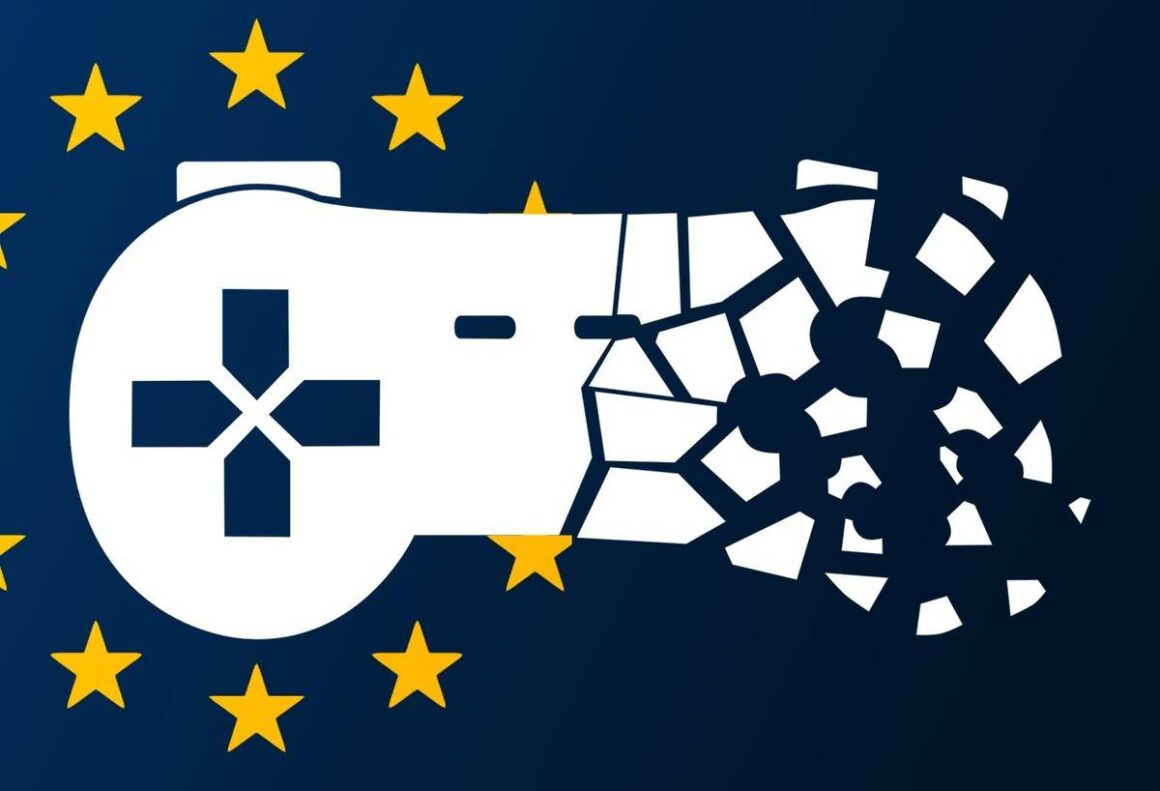An anonymous complaint was filed against the Stop Destroying Games EU initiative, accusing the campaign of violating EU transparency rules. The campaign is filed as a European Citizens’ Initiative, an official EU mechanism that gives EU residents a way to propose a legal act to the European Commission.
Stop Destroying Games is distinct from the Stop Killing Games movement since it has its own organizers. The objective for both is the same though, which is to stop publishers from shutting down video games without providing means to make them available offline or give players the chance to preserve them.
What Does The Complaint Say?
Specifically, the complaint claims that:
- The campaign failed to disclose “clear, accurate and comprehensive information on the sources of funding for the initiative exceeding EUR 500 per sponsor”.
- Stop Destroying Games has been accused of “systemic concealment of major contribution” and for falsely including a “no funding” declaration on its petition.
- The complaint alleges that Stop Killing Games founder Ross Scott made professional contributions based on an estimate of 2,100 to 4,900 unpaid hours. This is valued between €63,000 and €147,000 in professional service terms.
- The main issue the complaint has is that accuses Ross of lying about being a volunteer and claims he’s secretly funding the campaign.
Ross Scott has denied these allegations. He says he hasn’t been paid a dime, that he’s just a promoter of the initiative, and that he doesn’t hold a formal role within the Stop Destroying Games campaign. More importantly, he warned that the complaint is coming right after industry lobbying groups started getting vocal about their opposition.
Is There Evidence the Gaming Industry Is Behind The Complaint?
We’ll probably never know for sure who filed the complaint because it was filed anonymously. There’s been no public confirmation linking it to any specific company, group, or individual in the gaming industry.
Maybe it was someone in the industry, quietly trying to throw a wrench in the initiative. It could have been filed by a misinformed gamer who doesn’t understand what the campaign is actually fighting for. Or maybe it’s just someone who’s very comfortable with the status quo.
The timing is hard to ignore. The campaign had just passed 1.4 million verified signatures, surpassing the 1 million signatures required to force a response from the European Commission. Meanwhile, major trade bodies and publishers (including Ubisoft) have been pushing back in public, warning that the movement’s proposals were unrealistic and would set a dangerous precedent.
So yes, it’s speculative to say the complaint came from someone in the industry. It doesn’t change the fact that there is genuine fear about the campaign’s growing popularity.
Ross Scott said it best, “Do you think lobbyists would be speaking out against us if we had no chance of changing things?”
Will This Complaint Stop the Petition?
As of now, the complaint hasn’t had any legal impact on the petition’s progress. Here’s what happens next:
- The EU verifies the signatures.
- The petition goes to the European Commission for formal review.
- Organizers get a structured discussion with EU officials.
- Possibly, there’s a public hearing in the European Parliament.
- The Commission responds with a decision.
That process is still moving forward. If anything, the complaint could backfire by drawing more attention to the movement. It’ll make people question why such a campaign would threaten anyone in the first place.
Why The Pushback is a Good Thing, Actually?
The Stop Killing Games movement is about challenging the idea that once a publisher pulls the plug, your game disappears with it. It’s asking why you can’t own the games you bought while demanding better from an industry that’s grown comfortable with always-online models and short lifespans.
This complaint, in an ironic way, helps validate the movement. Because if no one felt threatened, they wouldn’t bother trying to shut it down.
More and more players are growing tired of being asked to rent online games under the illusion of ownership. Now they’re watching the games they paid full price for vanish with a server shutdown. The games-as-a-service model works great for companies but not for the people actually playing the games.
This petition is the first real step toward forcing change. And the louder the pushback gets, the more it proves how much the industry wants to avoid that change. No matter who filed the complaint or what their motive was, the fight is just getting started.
The message couldn’t be clearer: if you’re trying this hard to stop us, we must be on the right track.






